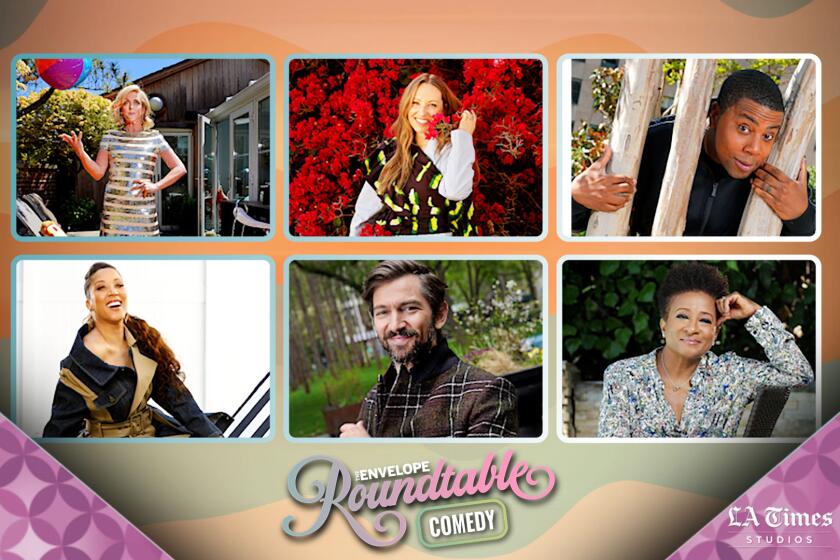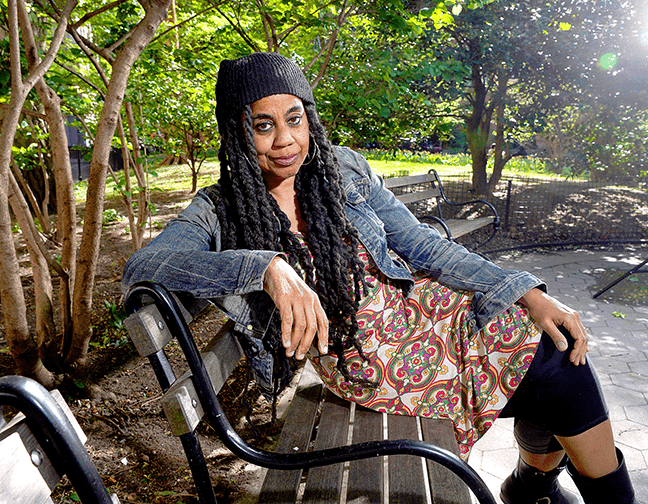Hugh Grant’s desire to kill and other insights from 6 drama actors

- Share via
“The Crown” doesn’t always paint a rosy picture of the royals. So what do Brits think of it?
“Well, to some of us, it’s treason,” said Hugh Grant, dryly, as the other five actors gathered remotely for The Envelope’s annual Drama Roundtable conversation laughed. One of those was Emma Corrin, who plays Princess Diana in the Netflix show’s fourth season. “I adore ‘The Crown,’” Grant said to her during the May 3 chat. “I did think this last one was probably the most controversial. I have a question for you.”
“OK,” she said, with a touch of hesitation.
“I genuinely adored it,” “The Undoing” actor reassured her. “I hope you can tell from my tone. And you were sensational.”
“Thank you,” she said graciously, waiting for that other shoe to drop.
The Comedy Roundtable calls on Wanda Sykes, Jane Krakowski, Kenan Thompson, Anna Konkle, Robin Thede, and newcomer to funny Michiel Huisman to cheer us up.
“And I know [showrunner] Peter Morgan; I used to play golf with him — a very bad-tempered golfer,” Grant continued. “But I thought, when you go to Balmoral and then [the royal family is] horrible to you, that was the first time ever in the series I thought, ‘I don’t think they would have been that horrible, they wouldn’t have been that rude.’”
“You mean when I walk in and am standing in a circle [of family members]?”
“Yeah, particularly that scene. And then they won’t help you with ‘Who do you bow to first.’ And then Princess Margaret’s horrible to you and all that. Is that all accurate? I felt they just would have been too English to be that nasty.”
“Honestly, I’m not sure. I know that there are certain things that the research team know happened. And I think Peter elaborates on it for the purposes of the story,” Corrin explained. “I think that what he wants to get out of that scene was that Diana walked in expecting a family, and what she got was The Firm.”
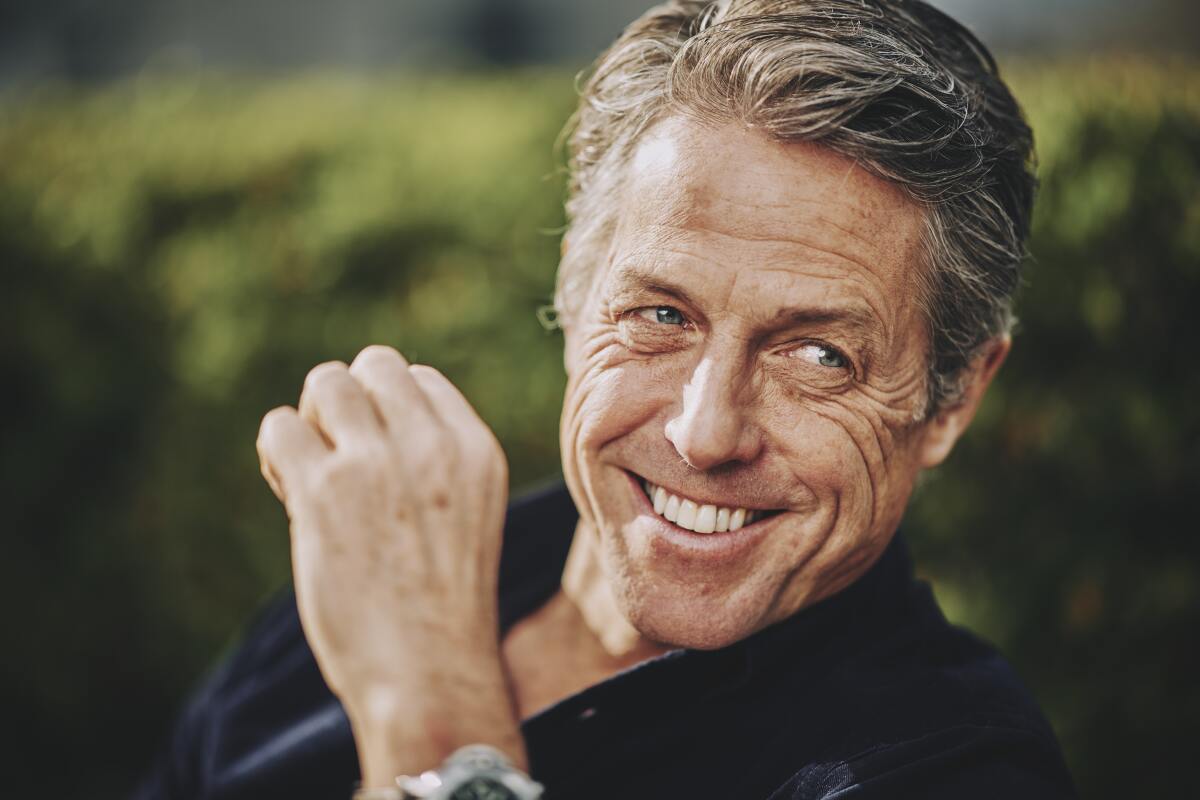
Grant said, “But I thought all the way through the series that [Morgan] basically liked them. And then suddenly I thought, ‘Oh, Christ, he hates these people.’ ”
“If I may say, I’ve had a lot of British people be absolutely nasty and horrible to me, Hugh, so I believe it,” chimed in Ethan Hawke, who stars as abolitionist John Brown in Showtime’s “The Good Lord Bird.”
“We do hate you,” said Grant, to laughter.
Did we mention this was a drama panel?
The group that also included Anthony Mackie (Disney+’s “The Falcon and the Winter Soldier”), Elisabeth Moss (Hulu’s “The Handmaid’s Tale”) and Jurnee Smollett (HBO’s “Lovecraft Country”) undeniably found some moments to have fun in the conversation that covered finding the keys to their characters, stories that couldn’t have been told a few years ago and how much Grant likes killing.
The Envelope Showrunners Roundtable gathers the creators of ‘Bridgerton,’ ‘Dickinson,’ ‘Hacks,’ ‘The Handmaid’s Tale,’ ‘Genius: Aretha’ and ‘Small Axe’ to talk television today.
These excerpts of their conversation have been edited for length and clarity. And there are spoilers ahead.
Hugh, I heard an interview where you refused to call HBO’s “The Undoing” “television.” TV used to be considered the impoverished cousin to film, but does it still have that feeling for you?
Hugh Grant: Only for me. Everyone else has moved on.
So what lured you into “The Undoing?”
Grant: Well, it seemed like a very classy project. I don’t get offered that many classy projects. It was Susanne Bier, very distinguished Danish director. It was David Kelley, who’s the king of television in America, apparently, and Nicole [Kidman], with all her Oscars. So I felt I couldn’t possibly say no, although I did try, because I hate working.

Ethan, do you think it was easier to get “Good Lord Bird” made now than it would have been, say, 10 or 15 years ago?
Ethan Hawke: I don’t know. Yes. I mean, to speak to the question that you asked Hugh, I feel like the landscape of what we do is changing. The industry is always changing how we tell stories. I felt very much like “The Good Lord Bird” was just a six-, seven-hour movie.
When I was a kid, television just entertained you for as long as they could. The stories didn’t have a beginning, middle and an end. They didn’t have a theme, they didn’t have a thesis, they didn’t have metaphor. They were generally a smaller budget. Now, we had one of the hugest budgets I’ve had on “The Good Lord Bird.” And so that was exciting to me to work on a much bigger canvas and to have more time with the character but to not feel like I was pouring water in my beer. There’s a political atmosphere to our show. I think had Showtime foreseen how volatile this year would be, they might not have made the show. I never understand why people greenlight what they do and why they don’t.
Elisabeth, I wonder if “Handmaid’s” is one of those shows that a few years ago would have been hard to get made?
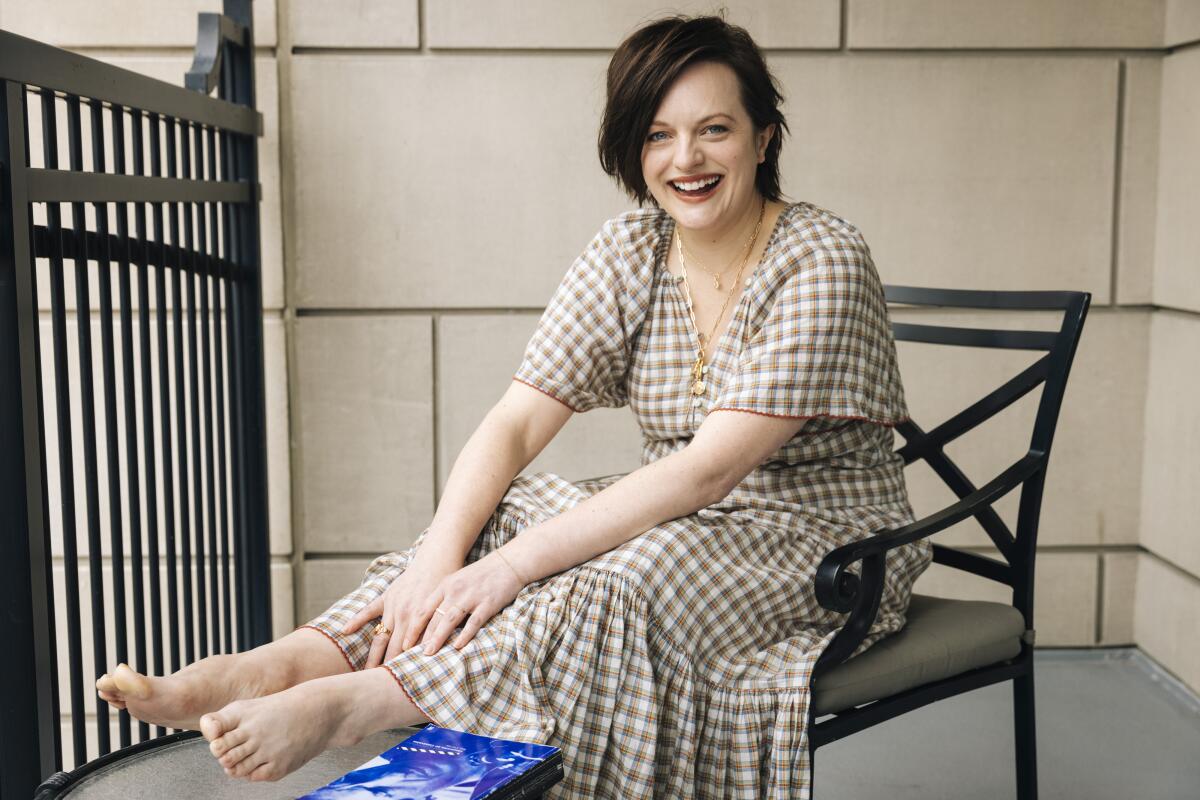
Elisabeth Moss: Oh, I think it was definitely helped by the era of streaming, because it can be a pretty tough show to watch. With the limitations of network television, obviously we wouldn’t have been able to make it. But I echo what Ethan said where I don’t quite understand, even as a producer, why things get greenlit and why some things don’t. I do think that our show in 2016 obviously came along at a time that people were really looking at certain things that were paralleled on our show. But also, that book is a Pulitzer Prize-winning book and has been resonant over the years.

This streaming thirst for content seems to have knocked down some genre barriers. Horror and sci-fi, and even superhero fare, traditionally have been the province of white men as creators and characters, but your shows don’t follow that mold.
Jurnee Smollett: I say all the time how I’m not the only one who feels like as a Black artist you can be a fan of horror but horror hasn’t always been a fan of us. There was a time in which I just told my agents, “Do not send me a horror film, because I know I’m just going to be the Black chick that dies on page 37.” With “Lovecraft Country,” it was so exciting for me to be a part of a counter-narrative to such a dominant narrative.
Anthony, your Sam Wilson is a world-famous Avenger yet can’t get a bank loan. He gets racially profiled. There’s a subplot about Isaiah Bradley, the Black super-soldier, that has very strong resonances from the Tuskegee Syphilis Study.
Anthony Mackie: [Marvel exec] Kevin Feige called me and told me that they were going to introduce Isaiah Bradley and the arc of the character and the story and what they were going to do with it. I was blown away that Marvel, to speak frankly, would have the balls to do that.

The relationship between Black men and America is one of abuse, betrayal, disheartened love and no appreciation. It’s [Sam] having to come to grips with the abusive relationship that he has with the country that he lives in and then having to stand up and fight for that country. That was something that as a Black man with my four Black sons, with my Black dad and two Black brothers, we’ve always had that conversation.
Emma, as Princess Diana, there must have been a great deal of responsibility there because of what people feel about her, right?
Emma Corrin: There was this huge tidal wave of responsibility and also just so much out there. I mean, you can type the name into Google, and there are still news articles. People just have this endless fascination but also so much feeling towards her. So I struggled to get beyond that and figure out how I was going to actually make this person, who felt so unapproachable in scale, someone who I could actually inhabit in some way. I think that’s something that people weirdly love about “The Crown”; it turns these people who feel very removed from our everyday life into human people with human stories. And at the end of the day, what [costar Josh O’Connor, who plays Prince Charles] and I were doing was exploring the nuances and complexities in two people’s marriage.
Ethan, you have a very different historical-figure challenge in playing John Brown. He’s somebody I think most Americans have heard of but don’t know that much about.
Hawke: I wasn’t playing John Brown as he was. I was playing John Brown as imagined by [author] James McBride. And our narrator’s this young kid, Henry Shackleford, and he’s kind of like Huck Finn or something; he’s an unreliable narrator. He’s telling you the John Brown he knows. I remember when I was a kid, everybody that I met who was extremely religious or extremely political, I always felt like they were yelling at me. I just remember my grandfather saying to me, “What do you think about Jimmy Carter?!!” I was afraid of them. So I had this idea that maybe [Henry, aka] Onion would perceive me as yelling at him all the time. I just kind of ran with that idea and tried to base it off something personal.

Hugh, your character Jonathan’s state of mind, or who he really is, is one of the key pillars of “The Undoing.” Did you seek out a professional opinion of what he is? Is he a psychopath, is he a narcissist?
Grant: I did Google all that stuff, like the difference between a sociopath and a psychopath and a narcissistic sociopath. I think it was quite useful, but it’s all a bit dry. And in the end, a bit like Ethan basing his character on his grandfather, I find it more useful to find real people that one knows and use them as models rather than some academic model. So I was lucky to have Boris Johnson and Donald Trump, narcissistic sociopaths, on my TV screen.
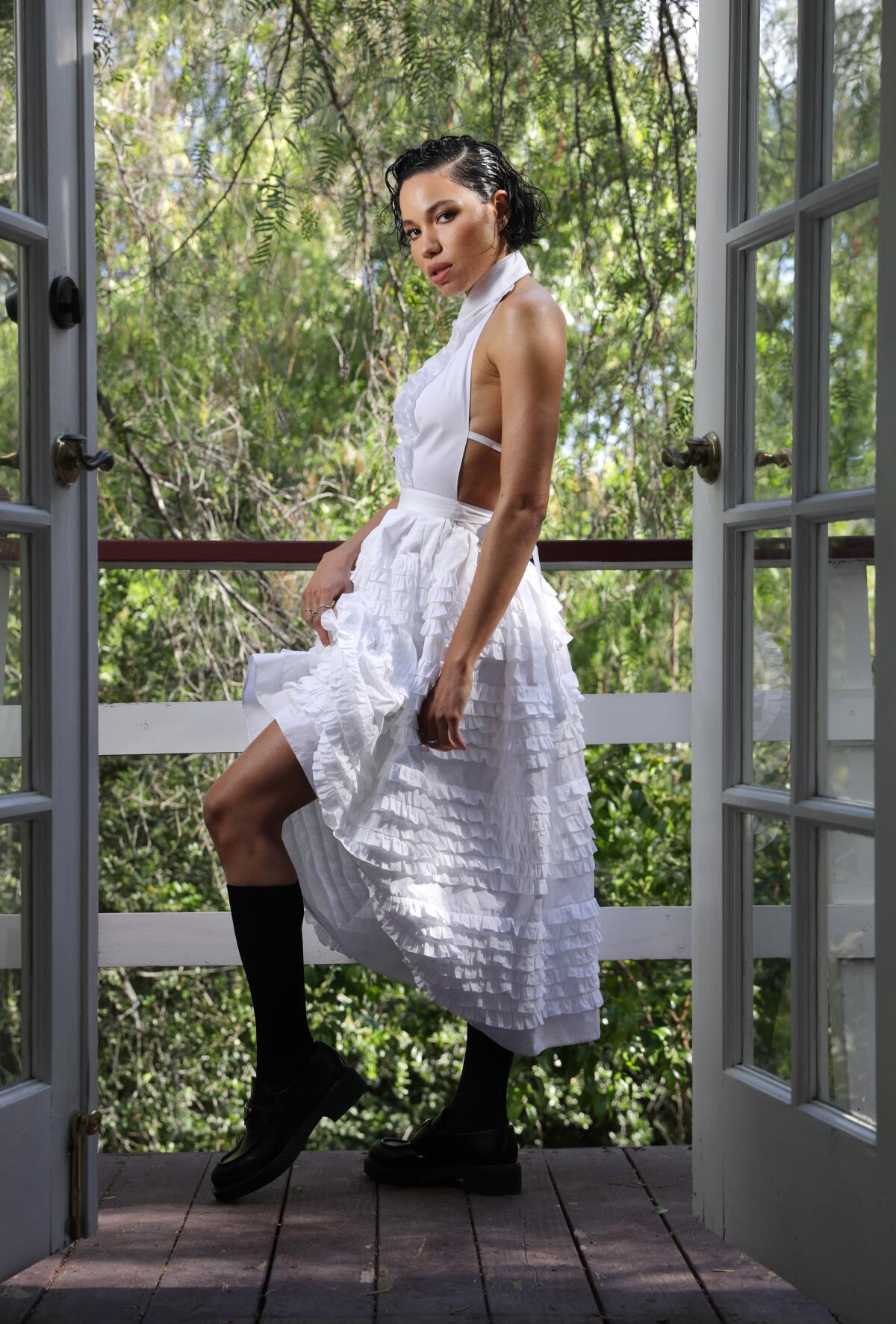
Jurnee, I heard you say you thought of your grandmother as the basis for Leti.
Smollett: Yeah, my grandmother, she was nicknamed “Showtime,” because she could show you a good time. [She was] the first Black Miss Galveston, Texas; a beauty queen, an extraordinarily intelligent woman, and a single mom who raised four Black children in the 1950s. My mom would talk about the dignity that my grandmother had. This real indomitable spirit. She was a beauty queen, but she cleaned the homes of white folks. And every single day she would go to work with her hair done and her lipstick on and her dress pressed and clean their toilets.
And it didn’t matter how much they disrespected her or underpaid her or tried to rob her of her dignity. She wouldn’t give them that power over her. I thought about that so much in my approach to Leti. I thought a lot about my grandmother and women in the 1950s, who had to fight the patriarchy and white supremacy at the same time.
Emma, when I saw the scene of you dancing alone as Princess Diana, I thought, “This is like a window into who this person really is.” Is there a moment that reveals who you think Diana is?

Corrin: It was that episode “Fairytale.” You experience Diana’s intense isolation. That dancing scene was such a joy to do. I remember Ben Caron, the director, saying, “Oh, we’ve got a choreographer who will choreograph something for the dance scene tomorrow where you lose yourself.” And I remember saying — I mean I’m not a dancer at all, in fact, like, notoriously bad — but I remember that I just had this weird gut instinct, and I was like, “Do you mind if we don’t choreograph it? I’d really just like to feel it. And is it OK also if I pick the music?”
So I came in the next day, and everyone was quite nervous about what I was about to do. And I danced to Cher, “Do You Believe?” They set up one camera, and I just danced for three minutes. And it was euphoric, and it was incredible. I just loved it. And I think for me that got to the crux of Diana, the child within her who just needed to be seen and to be held. I think that’s really all she wanted the entire time. And it got her spirit of this energy she had that was infectious. And I think people felt that, this spirit that you couldn’t dampen.
Hugh, about what you’ve called Innocent Jonathan/Guilty Jonathan: Do you feel there were moments in the show that revealed him?
Grant: I think he would have a tough time answering your question, because 99.9% of the series is Innocent Jonathan — who, of course, is a lie. But it’s a lie that he absolutely believed, in the way that real sociopaths, they do believe their own lies. For him, it’s impossible that he could have committed this appalling act.

But the truth of the matter is, the real Jonathan, the Guilty Jonathan, is only exposed once in a scene that actually was never in the script. It was put in by me having a little tantrum. And Susanne Bier agreeing with me, because I felt it wasn’t really clear in the scripted version of Episode 6 who really had done it. And I thought, “Is this just them leaving the door open for a subsequent series?” And I’d really signed up on the basis of being a killer. I wanted to kill. So I was cross. So then Susanne said, “So we’ll shoot the murder, and then there won’t be any debate about it.” So in that scene, the beast Jonathan has sex with that poor girl, that poor actress — Christ, quarter of my age, awful for her — and then I smash her against the wall, and then I kill her. Obviously, that’s the only real Jonathan.
Ethan, can you tell me about a key moment for John Brown?
Hawke: One of the fascinating things about John Brown is that he was really proud of his boys for dying. I was reading these letters and people would say, “How could you do that? You’re crazy. You got your sons killed,” and he said, “Someday, America is going to be ashamed of slavery, and they’ll never be ashamed of my sons.” He has a line where he says — it’s in the novel, and it’s one of my reasons to make the show — “There’s an eternity ahead of us, and there’s an eternity behind, and this one little speck in the middle, that’s our life,” and he’s just charged to live that speck to the fullest.
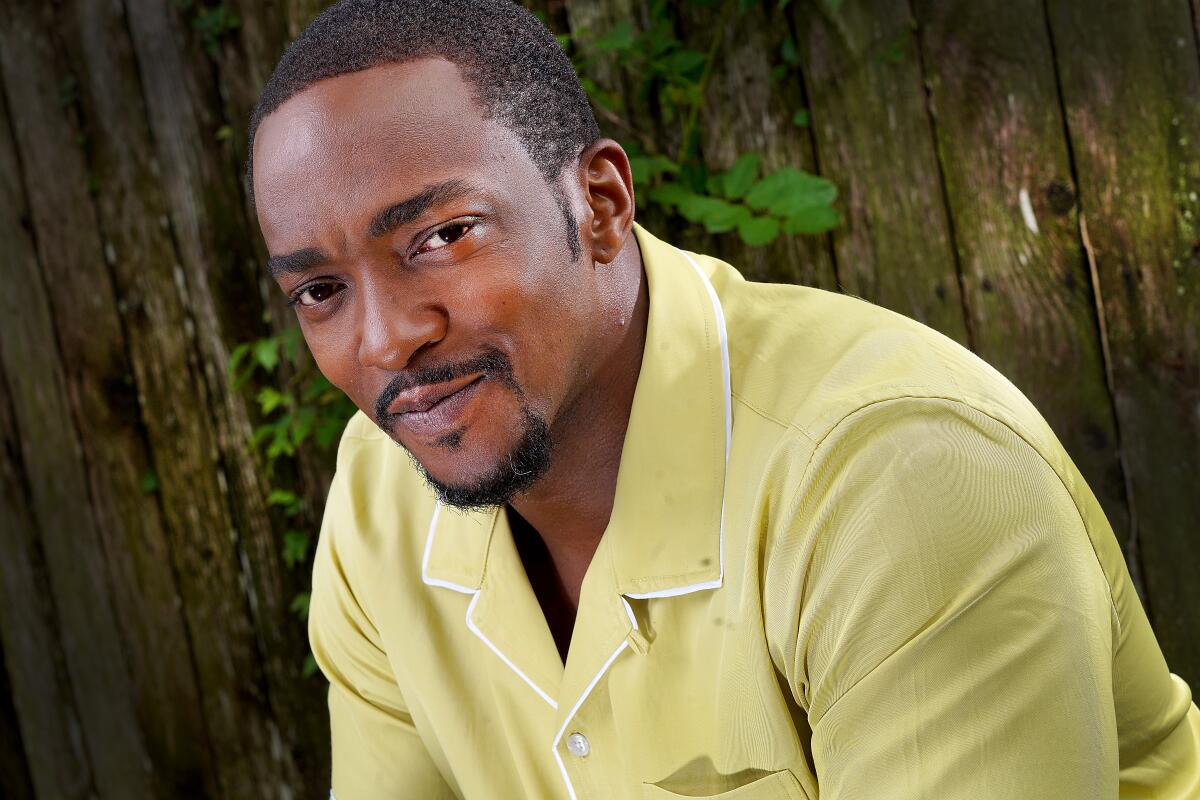
Anthony, when I think about kids seeing that Captain America is Black, I think that’s profound.
Mackie: The reactions have been amazing. They’ve been huge, but it’s been the same reactions when little girls watch “Wonder Woman” or when you’re watching “Black Panther” and there’s an army of Black women. The idea of representation, the idea of recontextualizing what you think the norm is, is always important.
Every time the Doras [the Dora Milaje, the Black Panther’s all-female, elite bodyguards] come on, my boys are like, “Those chicks are bad.” And my 11-year-old goes, “Dad, those ladies are badass,” and I’m like, “Hell, yeah, they are.” So, the idea of that, them growing up with that, it changes everything. But the response has been great. We think it’s an awful world that we live in and people are sh— but don’t let the 1% mess it up for the 99%. I haven’t had any negative feedback or response. Just a lot of people picking up my tab at restaurants.

Elisabeth, “The Handmaid’s Tale,” of course, spawned red-cloaked protesters. Have there been responses that mattered to you?
Moss: We make this show for people who don’t have a voice and for people who feel like they can’t speak up about what’s happening to them, whether that’s on a small scale or a large scale, whether it’s about race or gender, sexual identity. That’s who that speech [June’s testimony in Episode 8] is for: It’s for those people who don’t have the chance to stand up and speak out against people that are oppressing them. So, yeah, any time that costume is used to speak for women’s rights, human rights, that is incredibly meaningful. That’s largely due to the book, what Margaret Atwood wrote. You make something to entertain people, to tell a story. But when something can go a step further, like in Anthony’s case, it means something to you.
More to Read
From the Oscars to the Emmys.
Get the Envelope newsletter for exclusive awards season coverage, behind-the-scenes stories from the Envelope podcast and columnist Glenn Whipp’s must-read analysis.
You may occasionally receive promotional content from the Los Angeles Times.
